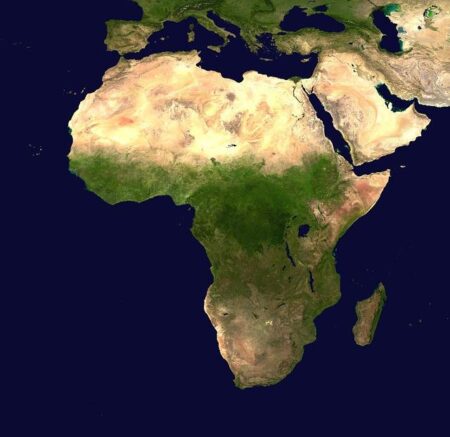In a significant progress for renewable energy in West Africa, the World Bank, alongside key partners, has announced a major initiative to fund solar energy projects in Guinea Bissau. This collaborative effort aims to enhance energy access in one of the region’s most underserved nations, where reliable electricity remains a critical challenge. With the support of international financial institutions and local stakeholders, the initiative seeks to harness the abundant solar resources of Guinea Bissau, promoting sustainable development and reducing reliance on fossil fuels. As the country embarks on this transformative journey toward energy independence, the project not only promises to empower communities but also serves as a vital step towards greater environmental resilience and economic growth in a rapidly evolving energy landscape.
World Bank and Partners Invest in solar Energy for Guinea Bissau Economic Growth
The recent initiative by the World Bank and its partners marks a significant stride towards harnessing renewable energy sources in Guinea Bissau. This collaboration aims to promote solar energy, a crucial step in the West African nation’s quest for economic diversification and development. The funding is expected to facilitate the installation of solar panels across various sectors, including healthcare, education, and agriculture, providing much-needed energy access to remote communities. this will not only improve quality of life but also stimulate local businesses and employment opportunities.
Moreover, the solar projects are anticipated to yield a range of benefits, such as:
- Reduction in energy costs: Lower electricity bills for households and businesses.
- Environmental impact: Minimization of carbon emissions and reliance on fossil fuels.
- Innovation and technology transfer: Introduction of new technologies that can stimulate further investment.
Included in this investment are several pilot projects that will serve as models for future expansion. The commitment from international partners is a testament to the potential of solar power to drive sustainable economic growth in Guinea Bissau. Below is a summary of the key solar energy projects:
| Project Name | Location | Expected Impact |
|---|---|---|
| Rural Solar Installation | Farim | 250 households powered |
| School Solar Initiative | Bissau | 5 schools equipped |
| Healthcare facility Solar Upgrade | Gabu | Improved patient care with uninterrupted power |

Exploring the Impact of solar Projects on Rural Electrification in Guinea Bissau
In recent years, solar projects have emerged as a transformative force for rural electrification in Guinea Bissau, driven by funding from the World Bank and various partners. The integration of solar energy is addressing critical challenges faced by remote communities, where access to reliable electricity has been historically limited. These initiatives not only provide sustainable power but also enhance the overall quality of life, enabling numerous benefits for local populations:
- Improved Education: Schools can operate after hours, providing students with the chance to study in a well-lit environment.
- Health Services: Rural clinics can function more efficiently, with refrigeration for vaccines and medical supplies.
- Economic Opportunities: Small businesses can thrive with consistent power, promoting local entrepreneurship.
The deployment of solar technology is contributing to significant socio-economic changes in the region. Not only does it facilitate better quality education and healthcare, but it also promotes environmental sustainability by reducing reliance on fossil fuels. To illustrate the impact further, the following table highlights key achievements of solar projects implemented in rural areas:
| Metric | Before Solar Projects | After Solar Projects |
|---|---|---|
| Access to Electricity (%) | 10% | 60% |
| School Attendance Rate (%) | 45% | 80% |
| Healthcare Facilities Operational | 2 | 10 |
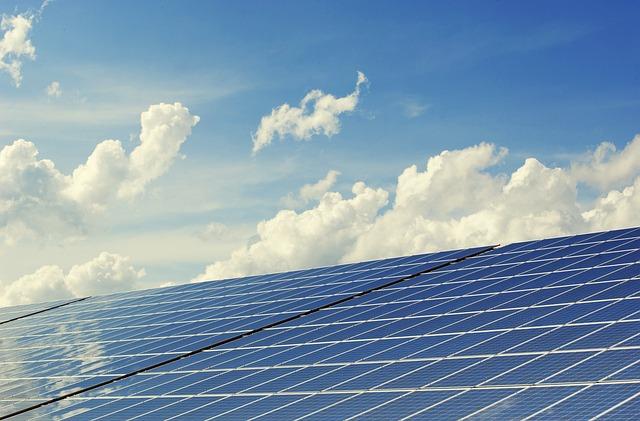
Strategies for Sustainable Implementation of solar Initiatives in West Africa
To ensure the effective execution of solar initiatives in Guinea Bissau and across West Africa, a multifaceted approach is essential.First, fostering collaboration among local communities, government agencies, and international stakeholders can enhance project sustainability. This includes engaging local leaders and citizens in the planning stages to understand their energy needs and preferences. Additionally, establishing training programs for local technicians and engineers can ensure ongoing maintenance and support, reducing reliance on foreign expertise. Key strategies include:
- Public-Private Partnerships: Leveraging investments from both the public and private sectors to fund solar projects.
- Capacity Building: Implementing educational initiatives to empower communities with the skills needed to operate and maintain solar technologies.
- Innovative Financing: Exploring creative financing solutions, such as microloans and pay-as-you-go models, to make solar energy accessible.
Moreover, it is crucial to address logistical challenges that may impede the deployment of solar energy solutions. This involves creating robust supply chains for solar equipment, ensuring timely deliveries, and minimizing costs. A strategic approach to integrating solar initiatives with existing energy frameworks can also amplify their impact. Developing a comprehensive energy policy that emphasizes renewable sources, alongside a strong incentive framework for solar adoption, would be beneficial. Below is a summarized comparison of potential approaches:
| Approach | Benefits | Challenges |
|---|---|---|
| Local Engagement | Increased buy-in and tailored solutions | Time-consuming and requires trust-building |
| Training Programs | Develops local expertise and sustainable jobs | Initial costs and resource commitments needed |
| Policy Framework | Encourages long-term investment and planning | potential bureaucratic hurdles in enforcement |
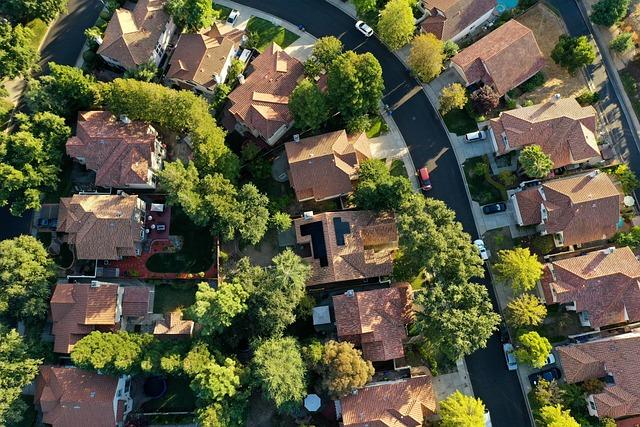
Innovative Financing Models for Renewable Energy in Guinea Bissau
As Guinea Bissau seeks to harness its renewable energy potential, innovative financing models are taking center stage to drive the implementation of solar projects. Traditional funding sources often fall short in rural and economically challenged regions, necessitating creative solutions that engage local and international stakeholders. Public-private partnerships (PPPs) have emerged as a vital strategy, enabling the government to collaborate with private investors to share risks and rewards. moreover, the integration of blended finance‚ÄĒcombining public funds with private investment‚ÄĒfacilitates the mobilization of capital that might otherwise remain untapped, accelerating the deployment of solar technologies.
Additionally, the adoption of community-led financing mechanisms empowers local populations to invest in renewable energy projects, ensuring that they have a stake in the outcomes.Initiatives like crowdfunding and microfinance are gaining traction, allowing individuals and communities to contribute to solar installations, thereby fostering an inclusive energy transition. By emphasizing capacity building and technical training, these models not only improve energy access but also stimulate local economies. The collaboration of international organizations, such as the World Bank, alongside these innovative financing approaches, is vital for sustainable growth within the energy sector in Guinea Bissau.
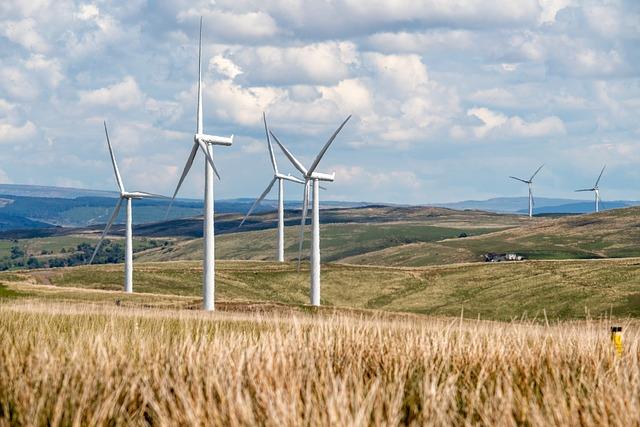
Evaluating the Environmental Benefits of Solar Energy Deployment in Guinea Bissau
The deployment of solar energy in Guinea Bissau presents significant environmental advantages that align with global sustainability goals. By harnessing solar power, the country can substantially reduce its reliance on fossil fuels, which have been a primary source of energy but come at a considerable environmental cost. The transition to solar energy is expected to lower greenhouse gas emissions, contributing to cleaner air quality and mitigating climate change impacts. This shift not only supports the health of local ecosystems but also provides a more stable energy supply that helps communities thrive.
Moreover, the implementation of solar projects can lead to a reduction in deforestation frequently enough driven by the need for firewood and charcoal as primary energy sources. By providing access to affordable electricity, these projects may promote a sustainable energy culture, encouraging the use of renewable resources.The potential environmental benefits include:
- Enhanced Biodiversity: Preserving natural habitats by reducing the need for land clearing.
- Water Conservation: Solar energy systems typically require less water compared to traditional energy sources.
- Soil Protection: Minimizing land degradation commonly associated with extractive fossil fuel industries.
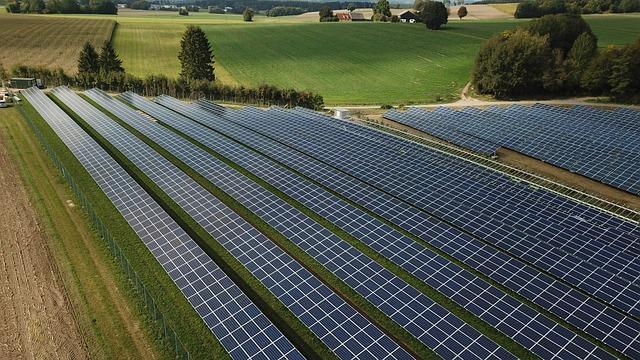
Recommendations for Enhancing Local Community Engagement in Solar Projects
To maximize the benefits of solar projects in Guinea Bissau, local community engagement is crucial. Initiatives should focus on creating platforms for dialogue between project developers and community members. Engagement strategies could include:
- Organizing community workshops to educate residents about solar energy and its advantages.
- Facilitating feedback sessions to incorporate local insights and concerns into project planning.
- Establishing local advisory committees that include community representatives in decision-making processes.
Moreover, fostering partnerships with local organizations can enhance trust and stakeholder involvement.Collaborative efforts may involve:
- Partnering with schools to promote educational programs about renewable energy.
- Involving local businesses in project logistics to stimulate economic growth.
- Encouraging community-driven initiatives that promote sustainability alongside solar energy adoption.

Concluding Remarks
the recent funding initiative by the World Bank, in collaboration with various partners, marks a significant step forward for Guinea Bissau’s renewable energy landscape. By investing in solar projects, these stakeholders are not only addressing the urgent energy needs of one of West Africa’s least electrified nations but also promoting sustainable development and economic growth. The emphasis on harnessing solar power underscores the commitment to transitioning towards a greener future, which is crucial for mitigating climate change impacts and enhancing energy security in the region. As these projects take shape, they hold the promise of transforming the energy access narrative in Guinea Bissau, empowering communities, and laying the groundwork for a more resilient economy. The journey ahead will require continued investment, strategic partnerships, and a focus on local capacity building to ensure that these solar initiatives deliver lasting benefits to the people of Guinea bissau.


